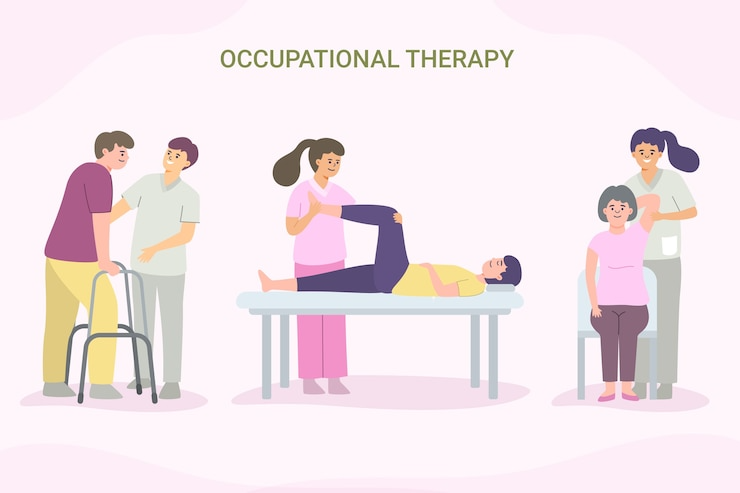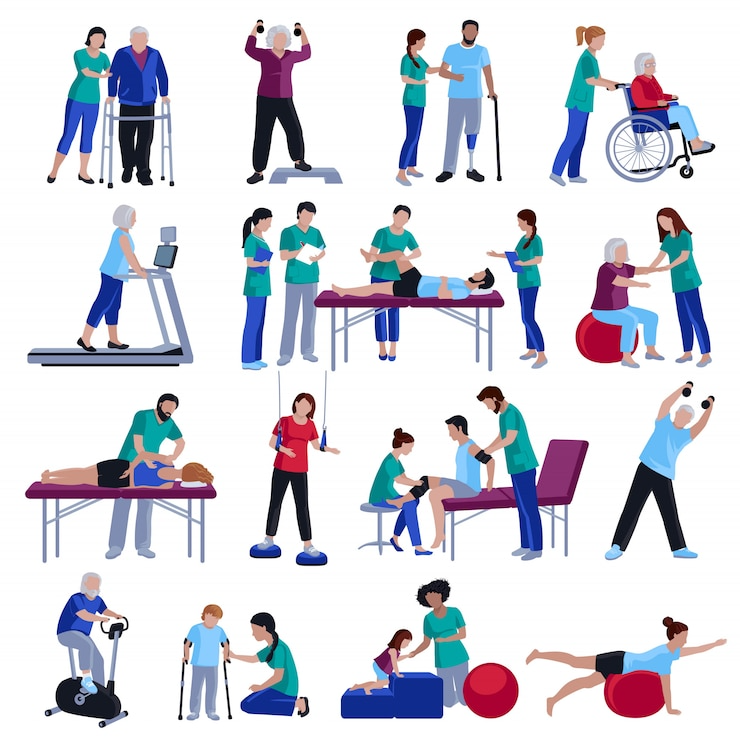
Occupational Therapy Adwait

What is Occupational Therapy
Occupational Therapy: Empowering Individuals to Live Meaningful Lives
Occupational therapy is a holistic and client-centered healthcare profession that focuses on helping individuals of all ages overcome physical, cognitive, and emotional challenges to engage in meaningful daily activities. By addressing limitations and promoting independence, occupational therapists enable individuals to lead fulfilling lives and participate actively in their chosen occupations. In this article, we will explore the principles, methods, and benefits of occupational therapy, shedding light on its transformative potential.
Occupational Therapy Meaning
Occupational therapy is grounded in several core principles that guide the therapeutic process:
Occupation-focused:
Central to occupational therapy is the recognition that engaging in purposeful activities, known as occupations, contributes to an individual’s overall well-being. These occupations can include self-care tasks, work or school-related activities, leisure pursuits, and social interactions. Occupational therapists work with clients to identify their meaningful occupations and establish goals to enhance their participation in these activities.
Client-centered approach:
Occupational therapy places the client at the center of the therapeutic process. Therapists work collaboratively with clients to understand their unique needs, preferences, and goals, ensuring that interventions are tailored to meet their specific requirements.
Holistic perspective:
Occupational therapy takes into account the interconnectedness of the mind, body, and environment. Therapists assess how physical, cognitive, emotional, and environmental factors impact an individual’s ability to engage in occupations. By addressing all these dimensions, occupational therapy aims to promote overall well-being and functional independence.
Methods Used in Occupational Therapy:

Occupational therapists utilize a variety of methods and interventions to help individuals reach their full potential and regain independence:
Activity analysis and adaptation:
Therapists analyze the demands of specific activities and adapt them to match the individual’s abilities and goals. They may modify the activity’s structure, equipment, or environment to ensure successful engagement.
Assistive technology:
Occupational therapists assess the need for assistive devices or technology to enhance an individual’s independence and participation in daily activities. These devices can range from simple tools to complex technological systems, such as mobility aids, adaptive equipment, or computer-assisted devices.
Environmental modifications:
Occupational therapists evaluate the physical and social environment in which individuals live and work. They recommend modifications to enhance accessibility, safety, and ease of participation. These modifications can include installing ramps, grab bars, or ergonomic workstations.
Sensory integration:
For individuals with sensory processing difficulties, occupational therapists employ sensory integration techniques. By creating controlled sensory experiences, therapists help individuals regulate their responses and improve their ability to engage in daily activities effectively.
Benefits of Occupational Therapy:
Occupational therapy offers a wide range of benefits to individuals across various age groups and conditions:
Enhancing independence:
Occupational therapy empowers individuals to develop or regain the skills needed for independent living. By addressing physical, cognitive, or emotional challenges, therapists facilitate individuals’ ability to engage in self-care, work-related tasks, and community activities.
Improving quality of life:
Occupational therapy focuses on promoting engagement in meaningful activities that bring joy and satisfaction to individuals’ lives. By supporting individuals in pursuing their passions and interests, occupational therapists contribute to an improved overall quality of life.
Rehabilitation and Recovery:
Occupational therapy plays a crucial role in the rehabilitation process for individuals recovering from injuries, surgeries, or illnesses. Therapists work closely with individuals to regain lost skills, adapt to new limitations, and reintegrate into their daily routines.
Supporting Mental Health:
Occupational therapy recognizes the impact of mental health on daily functioning. Therapists help individuals manage stress, develop coping strategies, and foster social connections, contributing to improved mental well-being.
Conclusion: Occupational Therapy
Occupational therapy is a dynamic and client-centered profession that focuses on enabling individuals to participate fully in meaningful activities and achieve a higher quality of life. By addressing physical, cognitive, and emotional challenges, occupational therapists empower individuals to overcome limitations and regain independence. Through a holistic and personalized approach, occupational therapy supports individuals across various settings, including hospitals, schools, rehabilitation centers, and community-based practices. By embracing occupational therapy, individuals can unlock their potential, maximize their functional abilities, and experience the joy of engaging in meaningful occupations.
